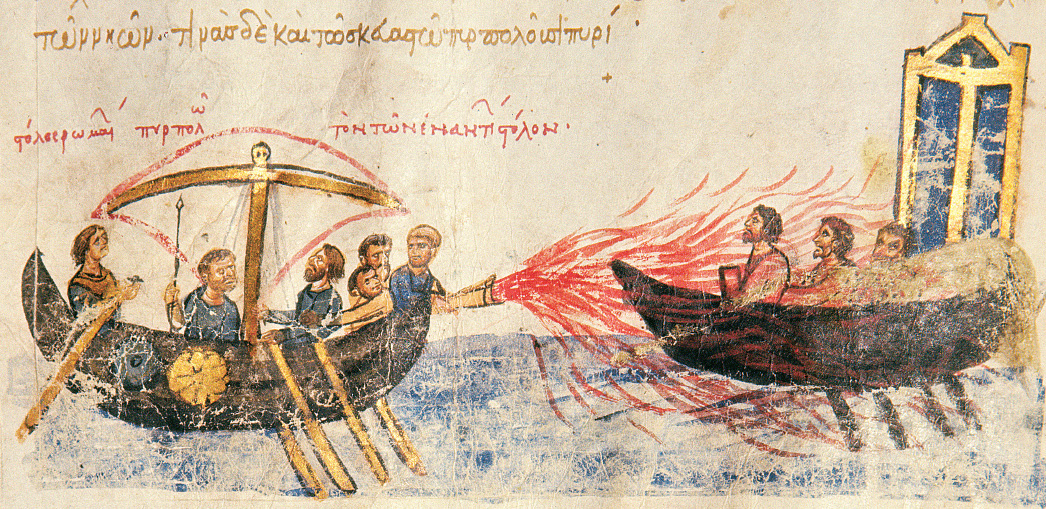Byzantine Intellectual Life
The Byzantines prized education; because of them, many masterpieces of ancient Greek literature have survived to influence the intellectual life of the modern world. The literature of the Byzantine Empire was predominantly Greek, although politicians, scholars, and lawyers also spoke and used Latin. Justinian’s Codex was first written in Latin. More people could read in Byzantium than anywhere else in Christian Europe at the time, and history was a favorite topic.
The most remarkable Byzantine historian was Procopius (ca. 500–562), who left a rousing account praising Justinian’s reconquest of North Africa and Italy, but also wrote the Secret History, a vicious and uproarious attack on Justinian and his wife, the empress Theodora. (See “Individuals in Society: Theodora of Constantinople.”)
Although the Byzantines discovered little that was new in mathematics and geometry, they made advances in terms of military applications. For example, they invented an explosive liquid that came to be known as “Greek fire.” The liquid was heated and propelled by a pump through a bronze tube, and as the jet left the tube, it was ignited — somewhat like a modern flamethrower. Greek fire saved Constantinople from Arab assault in 678 and was used in both land and sea battles for centuries, although modern military experts still do not know the exact nature of the compound. In mechanics Byzantine scientists improved and modified artillery and siege machinery.

The Byzantines devoted a great deal of attention to medicine, and the general level of medical competence was far higher in the Byzantine Empire than in western Europe. Yet their physicians could not cope with the terrible disease, often called the “Justinian plague,” that swept through the Byzantine Empire and parts of western Europe between 542 and about 560. Probably originating in northwestern India and carried to the Mediterranean region by ships, the disease was similar to what was later identified as the bubonic plague. Characterized by high fever, chills, delirium, and enlarged lymph nodes, or by inflammation of the lungs that caused hemorrhages of black blood, the Justinian plague claimed the lives of tens of thousands of people. The epidemic had profound political as well as social consequences: it weakened Justinian’s military resources, thus hampering his efforts to restore unity to the Mediterranean world.
By the ninth or tenth century, most major Greek cities had hospitals for the care of the sick. The hospitals might be divided into wards for different illnesses, and hospital staff included surgeons, practitioners, and aids with specialized responsibilities. The imperial Byzantine government bore the costs of these medical facilities.